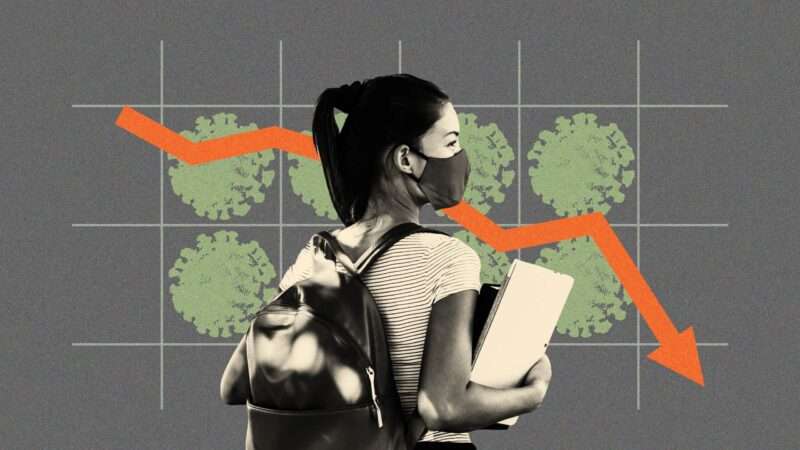
According to a new analysis of over 40 studies from around the world, children lost an average of one-third of a year of school during the coronavirus pandemic. Researchers say the loss is largely due to the disruption and damage school closures—and the subsequent shift to distance learning—brought on children's physical and mental health. This latest assessment is further evidence that pandemic school closures contributed to historic learning loss among children—a loss that seems increasingly difficult to repair.
Published on Monday by the Nature Human Behaviour journal, the analysis compiled the results of 42 studies examining pandemic learning loss from 15 countries around the globe. It found that, globally, children lost 35 percent of a school year's worth of learning during the pandemic.
The studies also indicate that attempts to reverse the severe learning loss caused by COVID school closures have been far from successful. Upon returning to the classroom, the deficits created during the pandemic have remained "incredibly stable," indicating that pandemic-era learning losses are likely to follow children throughout the rest of their academic careers.
The deficits are particularly pronounced in mathematics, which may be because "learning progress in mathematics is more dependent on formal instruction than in reading." As the analysis notes, "This might be due to parents being better equipped to help their children with reading, and children advancing their reading skills (but not their maths skills) when reading for enjoyment outside of school."
Learning loss was more pronounced in the middle-income countries, like Mexico and South Africa, included in the analysis. Indeed, middle-income countries accounted for the three highest estimates of learning loss. Studies from low-income countries were excluded due to poor data quality, though researchers note that "learning deficits are likely to be even larger in low-income countries, considering that these countries already faced a learning crisis before the pandemic, generally implemented longer school closures, and were under-resourced and ill-equipped to facilitate remote learning."
Even in a high-income country like the United States, the magnitude of learning loss remained steep. One study included in the analysis found that the average public school student in third grade through eighth grade lost half a year of math learning and a quarter of a year in reading.
However, two countries studied, Sweden and Denmark, managed to experience no significant learning losses. Sweden famously managed to avoid most school closures during the pandemic and notably never closed primary schools. While Denmark did have school closures, one study theorized that the lack of learning loss could be due to the country's "reliable digital infrastructure with Denmark being one of the absolute top-scorers in digital skills, broad-band connectivity, and digital public services in Europe."
The COVID pandemic "led to one of the largest disruptions to learning in history. To a large extent, this is due to school closures, which are estimated to have affected 95% of the world's student population," the analysis' authors argue. "The effect of limited face-to-face instruction is compounded by the pandemic's consequences for children's out-of-school learning environment, as well as their mental and physical health… These negative consequences can be expected to be most pronounced for children from low socio-economic family backgrounds, exacerbating pre-existing educational inequalities."
Currently, the picture for American children is bleak. Without immediate intervention, "learning loss will be the longest-lasting and most inequitable legacy of the pandemic," Thomas Kane, a Harvard economist who reviewed the analysis, told the New York Times. According to the Hoover Institution, U.S. children attending school during the pandemic are likely to experience a 5 percent reduction in their lifetime earning potential—a number that rises to as high as 9 percent in some states.
"The COVID-19 learning deficit is likely to affect children's life chances through their education and labour market prospects," the analysis' authors write. "At the societal level, it can have important implications for growth, prosperity and social cohesion."
The post Children Lost One-Third of a Year of Learning During the Pandemic, Analysis Finds appeared first on Reason.com.







